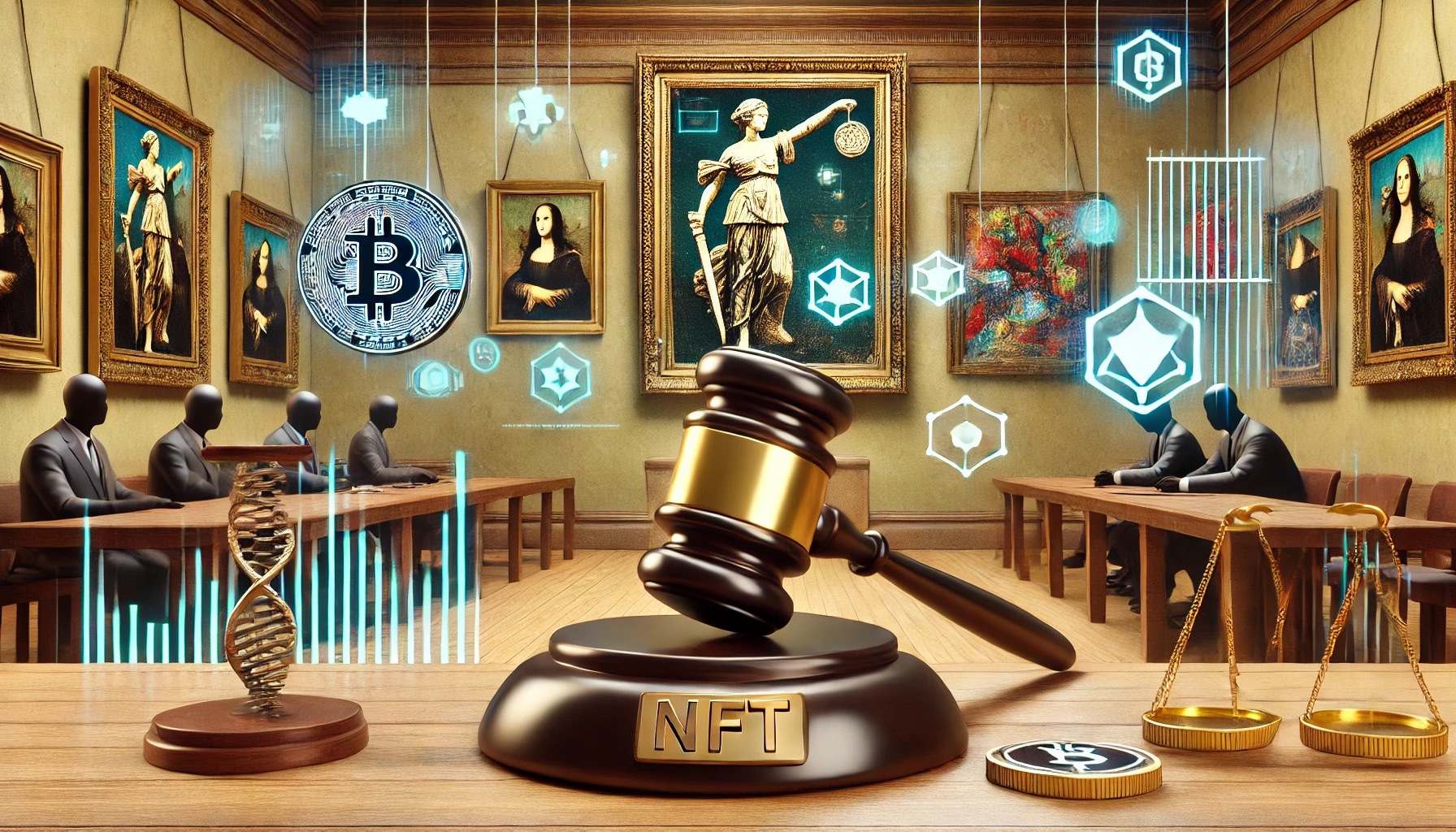
A group of 36 non-fungible token (NFT) holders has filed a lawsuit against Eden Gallery and artist Gal Yosef, claiming they failed to fulfill promises related to a metaverse-based private club and other associated perks. The complaint was lodged in a New York federal court on October 9, with the plaintiffs alleging that the project constituted a “rug pull” scam.
The NFT collection, known as the Meta Eagle Club, comprises 12,000 unique humanlike eagle NFTs. Between February 2022 and November 2023, the project reportedly generated $13 million in sales. However, the suing NFT holders argue that no substantial efforts were made to develop the Meta Eagle Club, despite assurances from the project team.
The lawsuit claims that the individuals involved in building the project lacked relevant experience or expertise in blockchain, smart contracts, or software development. This raises significant questions about the credibility and capability of those behind the Meta Eagle Club initiative.
| Project Feature | Details |
|---|---|
| NFT Collection | Meta Eagle Club |
| Total NFTs Sold | 12,000 |
| Total Revenue | $13 million |
| Sales Period | February 2022 – November 2023 |
Promised Perks and Experiences
The plaintiffs were promised entry into the Meta Eagle Club and various exclusive perks. According to the project’s roadmap, NFT holders were to have the opportunity to enter raffles for experiences such as:
- Entry to Eden Gallery events
- Hot air balloon rides
- Private jets and helicopters
- Exclusive collectible artworks
However, the group asserts that only a limited number of tickets to the advertised experiences were provided, which included just two Galyverse events and 11 physical artworks signed by Gal Yosef. This stark contrast between promises and reality has led to significant dissatisfaction among NFT holders.
On January 12, 2023, a successful vote on Eden Gallery’s Discord resulted in reallocating the remaining budget for roadmap items into “alternative utilities,” such as keeping a marketplace operational. The shift in focus was attributed to a downturn in the market, which raised further concerns about the project’s commitment to its original promises.
The group claimed that Eden Gallery and Yosef assured them of ongoing art creation to populate an online environment called the Galyverse. They alleged that these assurances were intended to motivate investors to purchase Eagle NFTs based on “materially false information,” ultimately leading to substantial financial losses as the promises made about the club’s value were never realized.
Legal Claims and Damages Sought
The lawsuit accuses Eden Gallery and Gal Yosef of common law fraud, unjust enrichment, and violations of New York General Business Law. The plaintiffs are seeking damages to be determined by the court, along with injunctive relief and attorney’s fees.
As of now, Eden Gallery and Yosef have not responded to requests for comment regarding the lawsuit.
This lawsuit is not an isolated incident in the NFT space. On September 19, two users of the NFT marketplace OpenSea filed a class-action suit against the platform, claiming it had sold unregistered securities contracts after receiving a Wells notice from the Securities and Exchange Commission.
In another case, a disgruntled customer brought a class-action lawsuit against the Italian fashion brand Dolce & Gabbana and digital assets platform UNXD in May. The lawsuit was based on delays in delivering NFT products, which resulted in the assets losing most of their value.
These lawsuits highlight a growing trend of buyer remorse in the NFT market, reflecting the challenges faced by investors who may feel misled by creators and platforms.
Current State of the NFT Market
The broader NFT market continues to struggle to regain momentum, having experienced significant declines from its previous highs. A report from NFT Evening analysts on August 20 suggested that 96% of approximately 5,000 NFT collections they examined were “dead” as of 2024, underscoring the difficulties within the space.
As the NFT market grapples with issues of trust, transparency, and regulatory scrutiny, it remains to be seen how these lawsuits will influence investor sentiment and the overall direction of digital asset platforms.
The lawsuit filed by NFT holders against Eden Gallery and Gal Yosef shines a light on the ongoing challenges in the rapidly evolving NFT landscape. With promises of exclusive perks and experiences falling short of reality, the case raises important questions about accountability and the responsibilities of creators and platforms within the NFT ecosystem.
As the NFT market faces increasing scrutiny and a wave of buyer remorse, both creators and investors will need to navigate the complexities of this new frontier carefully. The outcome of this lawsuit could have far-reaching implications for the future of NFTs, influencing not only investor confidence but also the regulatory landscape that governs digital assets.
Featured image credit: DALL-E by ChatGPT
Follow us for more breaking news on DMR
